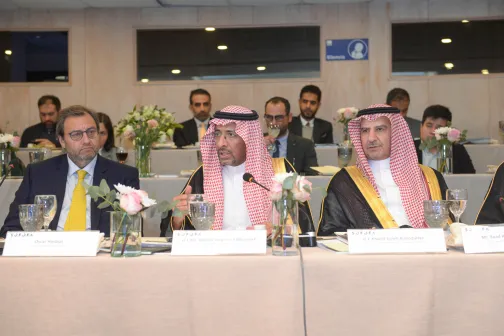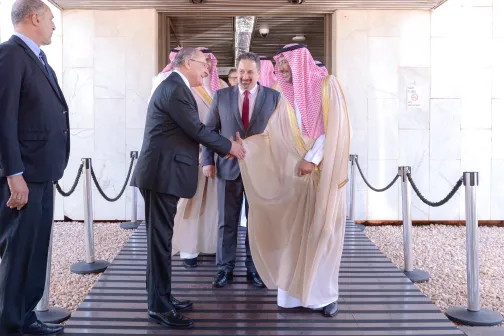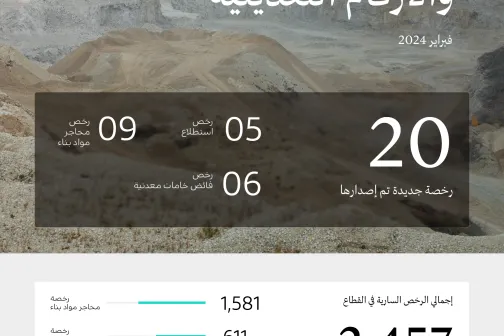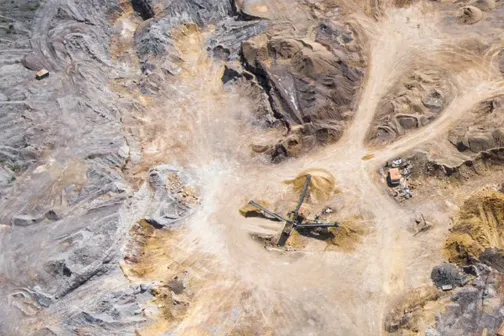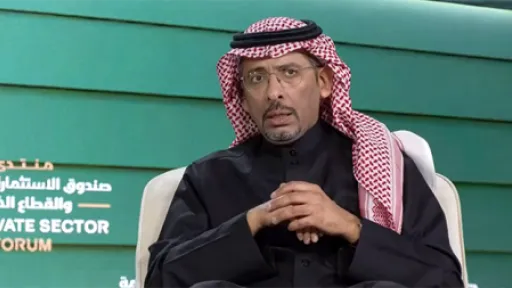
His Excellency the Minister of Industry and Mineral Resources, Bandar bin Ibrahim Al-Khorayef, confirmed that the Kingdom has become one of the most important countries, if not the most important, regarding the aspirations of the global mining sector.
This is reflected in its role as a source of natural mineral resources, its participation in the Future Minerals Conference, and its contribution to helping the international community achieve net-zero emissions by providing the natural mineral resources used in renewable energy industries, electric vehicles, and various types of industries. This is despite the fact that the mining sector is one of the promising new sectors for Saudi Arabia's Vision 2030, particularly in terms of focus within the economy.
Al-Khorayef, during his participation in a panel discussion titled "Promising Sectors" at the 2024 Budget Forum, which took place at the Ritz-Carlton Hotel in Riyadh on Thursday, pointed out that the objective of the mining sector in the Kingdom is an economic one, not a financial one. The intended economic impact of the mining sector is of the utmost importance in developing the sector to increase its contribution to supporting other sectors by providing natural resources for their industries and meeting global requirements.
He explained that the mining sector’s strategy is based on three main pillars: the first is increasing the discovery of the Kingdom's capabilities and natural resources. Several geological survey projects have been launched, worth over 1.7 billion riyals, and in 2023, a total of 370 million riyals were spent. The geological survey program provides high reliability regarding the quality and quantities of minerals available and their locations and uses. The second pillar is the legislative environment for the sector, such as the new mining investment law, which is considered one of the best mining investment systems in the world. The importance of this system has been reflected in increasing global companies' interest in investing in the Kingdom. The third pillar is linking the mining sector with the industrial sector to maximize economic returns.
Al-Khorayef also mentioned that one of the important initiatives involves launching mining competitions in sites proven to contain significant amounts of important minerals. These competitions have achieved international success, with the first competition launched about two years ago, which was won by a British company with a Saudi partner.
He stated that mining revenues in 2023 increased to nearly 1.8 billion riyals, representing a 35% increase. The sector also saw a rise in the number of new licenses in 2022 and 2023, indicating substantial growth. Gold, one of the most important minerals in the Kingdom, has shown significant growth this year, increasing from 370,000 ounces to nearly half a million ounces. The Kingdom aims to reach one million ounces by 2030.
Al-Khorayef said: "The National Industrial Strategy aims to transition the Kingdom from basic industries to advanced industries to generate significant economic returns. The strategy includes ambitious targets regarding the sector’s contribution to GDP, with targeted investments reaching 1.3 trillion riyals." He added, "We have built a complete automotive sector that includes three companies: Saudi 'Seer,' Lucid Global for electric cars, whose first factory outside the U.S. is in the Kingdom, and aims to export 70% of its production, and the Hyundai factory, which holds a significant market share in the Kingdom."
He further noted that the pharmaceutical sector was a key focus due to its connection to the Kingdom's pharmaceutical security, with significant agreements signed for insulin production. The goal is to create high-quality industries that serve national interests and are also aimed at export.
Al-Khorayef stated that total investments in the industrial sector this year reached 70 billion riyals, and more than 50 projects valued at 90 billion riyals were developed. The number of industrial licenses increased from 960 last year to over 1,200 this year.
He mentioned that the Industrial Development Fund continues to support the sector, with over 120 projects approved this year, amounting to loans exceeding 13 billion riyals, of which 3 billion riyals were allocated to small and medium-sized enterprises. The fund also participated in one of the Kingdom's most important projects, the hydrogen and ammonia project, with funding of 4.6 billion riyals.
